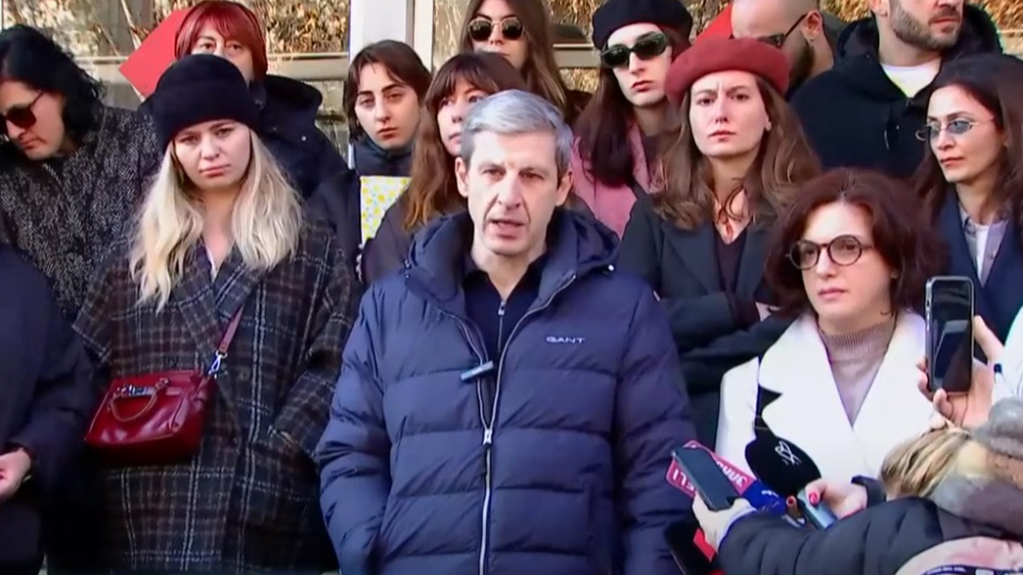Some employees of the Public Broadcasting Company's First Channel are demanding that daytime airtime be dedicated to discussions on socio-political issues rather than films.
News
Trending stories
- 1 Former Prime Minister Garibashvili Sentenced to Five Years in Prison After Plea Deal
- 2 Otar Partskhaladze Charged with Organizing Murder of Businessman Levan Jangveladze
- 3 Shalva Papuashvili Says Georgian Dream Filed Complaint with BBC
- 4 Georgian Dream Party Further Tightens Grants Law, Introducing Up to 6 Years in Prison
Representatives of various editorial offices held a press conference today, December 23, on the steps of the broadcaster's building. According to them, television - the most accessible source of information in the regions - currently airs series, foreign documentaries, and feature films during daytime hours.
"The main reason the management of the Public Broadcaster refuses to allocate airtime is technical. However, we know and believe that, with determination and will, it would be technically possible to provide several hours of daytime broadcasting," said journalist Tamar Mshvenieradze.
Vasil Ivanov-Chikovani, host of Moambe, stated that the argument that the Public Broadcaster is technically unable to meet such demands is untenable.
"Today, the editorial policy of the new and current news block on First Channel does not address the tasks and needs of society. First Channel claims to be operating in an emergency mode. However, the only time the Georgian Public Broadcaster transitions to emergency mode is when a state of emergency is declared in the country. Otherwise, the broadcaster operates in regular mode.
We are capable of creating new programs; we have the necessary human resources, as well as the material and technical base. What we lack is the will and determination to set tasks. Once those tasks are set, we are ready to execute them in the shortest possible time. For instance, we have every opportunity to air emergency broadcasts at least three times a day, as opposed to the single so-called emergency broadcast currently being offered," Chikovani said.
This position is echoed by director Kakha Melikidze, who noted that during the pandemic, the team managed to launch a new channel, Teleschool, in just two weeks. "We can set up a studio with as few as four people, from any location in the city, to ensure people understand what is happening in the country," the director said.
Channel One employees have been advocating for the resumption of daytime broadcasts since Georgian Dream announced its decision to suspend the country’s EU accession process on November 28.
In early December, following protests, the public broadcaster introduced an “emergency broadcast,” which airs at 10:00 p.m. and focuses on pro-European rallies. The so-called emergency broadcast features rally participants, political scientists, civic activists, and politicians who were not previously invited to Channel One. Channel representatives deny the existence of “blacklists.”















